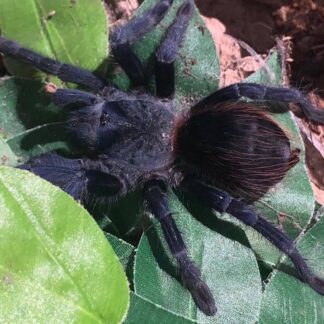Description
**Species Profile: Bumba Cabocla – The Brazilian Redhead Tarantula**
**Taxonomy:**
1. Iracema cabocla Pérez-Miles, 2000
2. Iracema cabocla Bertani & Carla-da-Silva, 2003
3. Iracema cabocla Schmidt, 2003
4. Maraca cabocla Pérez-Miles, 2005
5. Bumba cabocla Pérez-Miles, Bonaldo & Miglio, 2014
**Name Meaning:**
The name “cabocla” originates from the Portuguese feminine word, referring to the women of the Amazonic forests.
**Natural History:**
– Origin: Amazonic Brazil
– Terrestrial: Well-adapted to terrestrial environments
– Size: 4-5 inches
– Growth Rate: Medium-fast
– Natural Habitat: Thrives in the Amazonic rainforests
**Housing Needs:**
– Habitat: Terrestrial setup with a hide or burrow
– Humidity: Requires higher humidity; maintain a damp area in its habitat
– Temperament: Generally docile, with a gentle disposition
**Appearance:**
This species stands out with a vibrant orange carapace and shiny black abdomen and legs. As juveniles, they may display skittish behavior, but as they grow, they become more comfortable and often stay out in the open.
**Behavior:**
– Skittish as youngsters, but become more confident with age
– No threat pose or tendency to kick hairs
– Tends to dig if provided with sufficient substrate depth
– Adapted to a natural cycle of dry and rainy periods in its habitat
**Life Expectancy:**
– Females: 12-15 years
– Males: 3-5 years
**Recommended Experience Level:**
Beginner-friendly: This species is suitable for enthusiasts with varying levels of experience in tarantula keeping.
**About the Species:**
The Iracema Cabocla, also known as the “Brazilian Redhead,” is a rare and captivating addition to the tarantula hobby. Its distinct coloration, featuring a deep red carapace and long, elegant legs, sets it apart from more common species. Despite its initial skittishness as a youngster, this tarantula matures into a docile creature that seldom exhibits threatening behavior.
When encountering this unique species, formerly known as the Maraca cabocla, or the “Brazilian Redhead,” many enthusiasts are drawn to its striking appearance and intriguing habits. Known for creating complex tunnel systems, this tarantula showcases its adaptability by thriving in varied substrate conditions. While some keepers report preferences for moisture, others find their specimens indifferent, suggesting a natural ability to endure both dry and rainy periods, mirroring their native habitat.
For those seeking a rare and visually striking tarantula that evolves into a gentle companion over time, the Iracema Cabocla is an excellent choice. Whether you are a seasoned keeper or a beginner looking to add something unique to your collection, this species promises a rewarding experience in tarantula husbandry.




